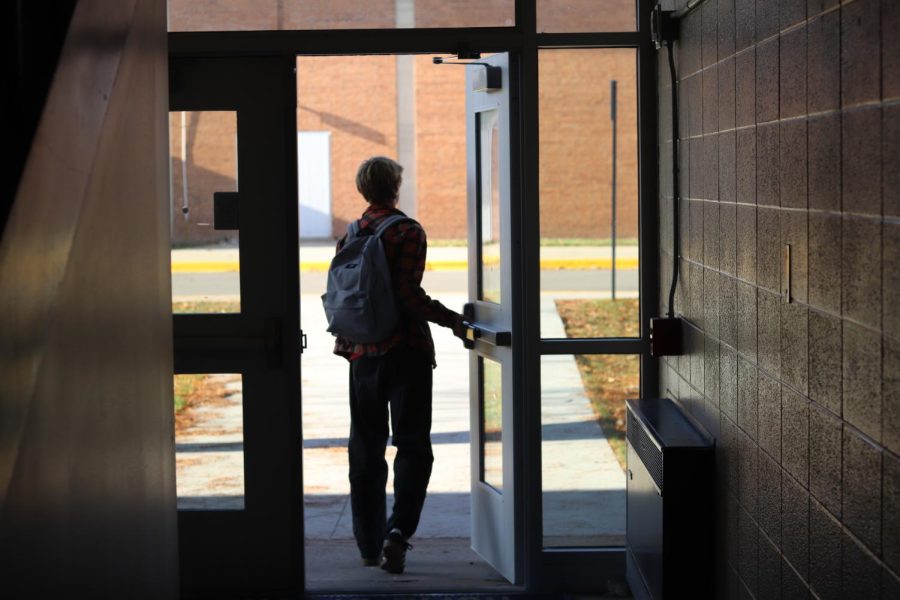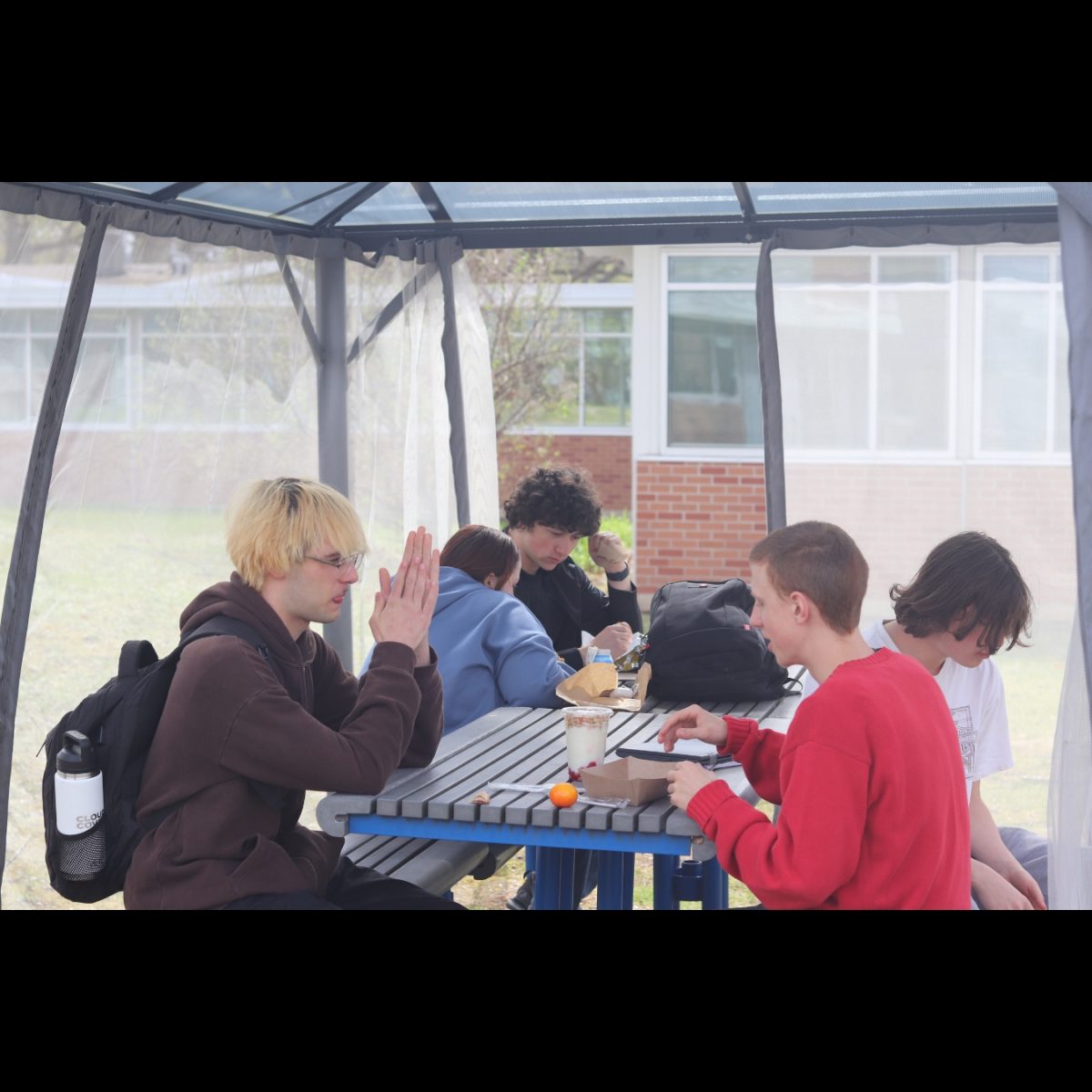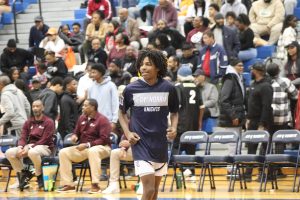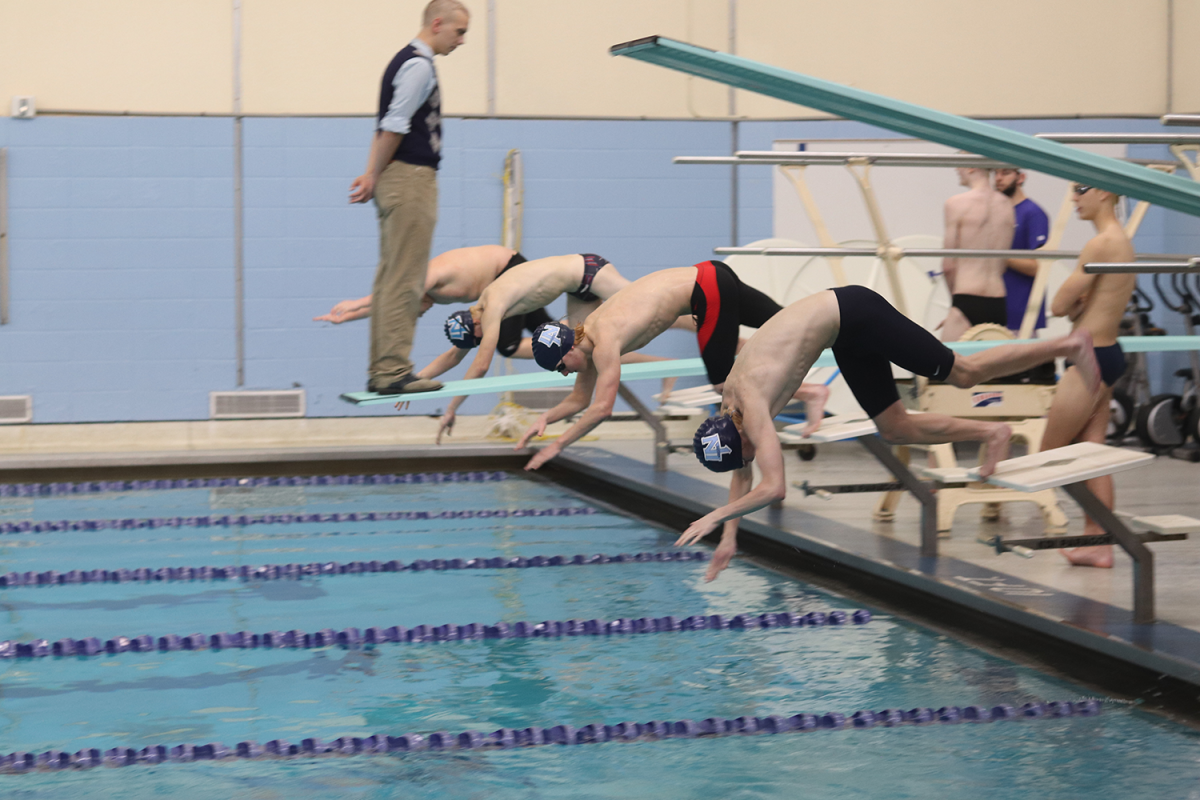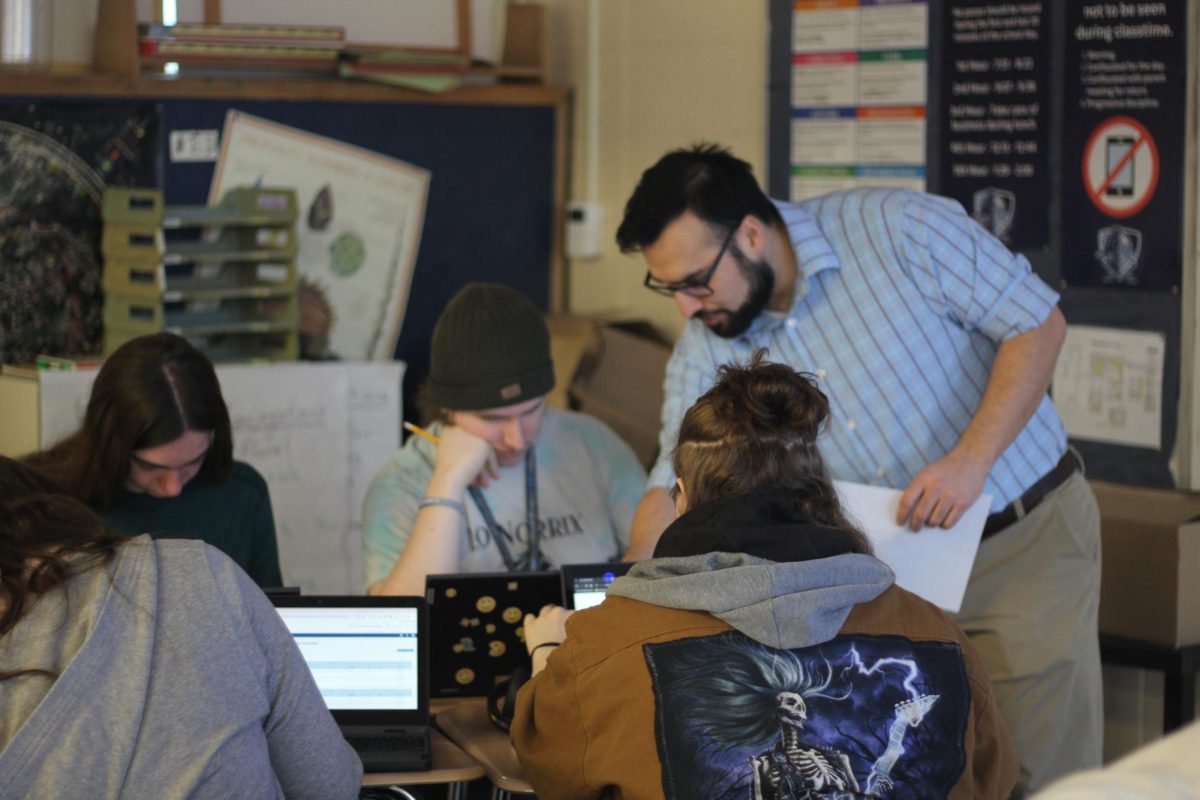Defying authority or “playing high school”: students and staff comment on skipping class
Credit: Owen Quayle
Senior Alex Buckley leaves the building through the lower K-wing exit. This is one of many direct exits from Loy Norrix that are largely not monitored
November 8, 2022
During the 2021-22 school year, many of the things that students and staff may have taken for granted in previous years were changed as a result of the pandemic.
One of the more obvious examples was attendance, which in a world of contact tracing and quarantines was confusing to keep track of.
“We used to have an 8 absence rule, and on the 9th absence you lost credit [for the class]… we are not enforcing it this year,” said Loy Norrix Principal Christopher Auginaga.
This change is actually from the 21-22 school year. At the time, Aguinaga said this was primarily in response to the high number of COVID-19 related absences.
Some might assume that this would actually encourage skipping, especially among the senior class, who are already anticipating life after high school, but Auginaga believes the opposite is true.
“By the time you get to senior year, you’ve figured out how to play high school. You’ve figured out that coming to class is important,” said Auginaga.
By doing away with the absence limits, the school passes the responsibility to the students themselves to decide whether or not they want to receive credit for their classes.
While many seniors may have learned to play high school, that doesn’t necessarily translate to greater attendance. In fact, for some students, “playing high school” means quite the opposite.
In reference to how many times he had left the building during the 2021-22 school year, senior Sean McFinton said, “Last year it was probably about 30 times.”
During this time period, Sean was taking AP Statistics, AP Physics, and AP European History. So clearly ,for some students at least, attendance does not directly correlate with academic success.
For those with an itch to get out of Loy Norrix during the day, skipping class is not the only option. McFinton is now one of many juniors and seniors that are participating in off-campus classes during the school day. He is enrolled in a college physics class at KVCC.
“Because of the way my schedule is set up, it doesn’t even really count as skipping. So I’m actually skipping less,” said McFinton. So while Sean may be leaving the building more often this year, it has no real implications for his attendance.
Even for those who don’t have an off-campus class, leaving the building before dismissal is still a relatively low-risk activity.
When asked if he had received pushback from staff when leaving the building, McFinton said, “No, absolutely none. There’s too many doors in Loy Norrix.”
The other party most directly affected by attendance levels throughout the school year is, of course, the teachers. Kids constantly skipping their class can affect a teacher not just professionally, but personally as well.
“I don’t know if I should take it personally, but I definitely do,” said biology teacher Jason Wagner. “It is a personal hit to me and a lot of kids seem to relate with that.”
Wagner not only teaches regular biology, but is also the instructor for the AP Biology class at Norrix. He has noticed a clear difference in the attendance between the two classes.
“AP is probably 90% attendance, and if you take away COVID-19 issues, it’s probably closer to 95%. Whereas in my other ones we’re talking 75%-80%,” said Wagner.
While it may feel aggravating to a student, a teacher intervening when a student’s attendance dips is just as likely due to their concern for their students rather than a desire to get students in trouble.
“I think there’s a lot of other barriers that are causing students to be absent…and some of those barriers go beyond what we can do here,” said Wagner. “Let’s get them into the classroom, and then we can start tackling those other out-of-building issues that students are facing.”
While these out-of-building issues have always been present, COVID-19 made these issues much more apparent. These conflicts take an already tricky issue and adds yet another layer of complexity.
Skipping, just like all the other issues students and staff face at Loy Norrix, is not cut and dry. Whether it is due to transportation, family responsibilities, or even simple lack of sleep, it is becoming more and more clear that students missing class is not always due to lack of caring or an attempt to defy staff authority.


